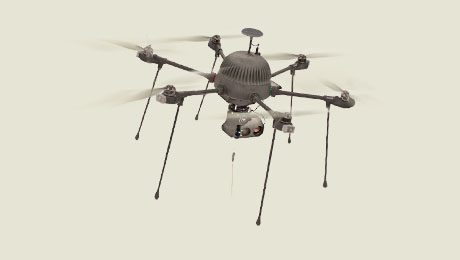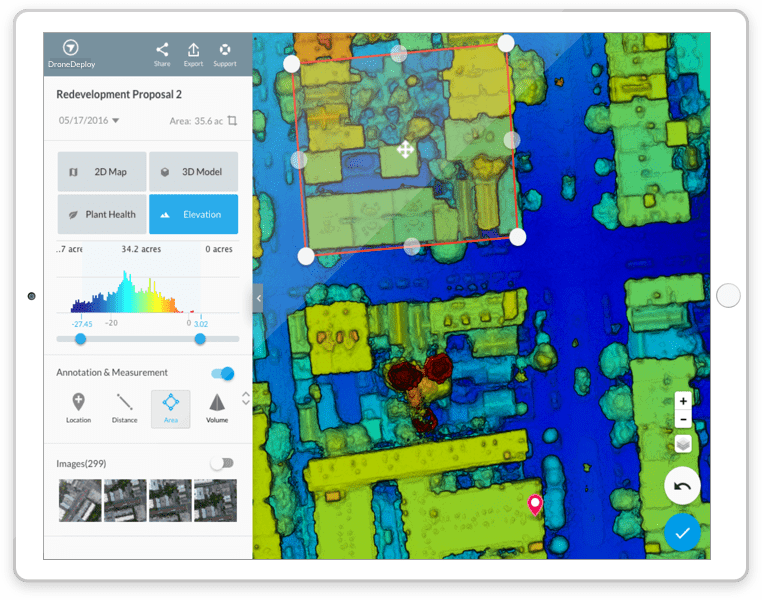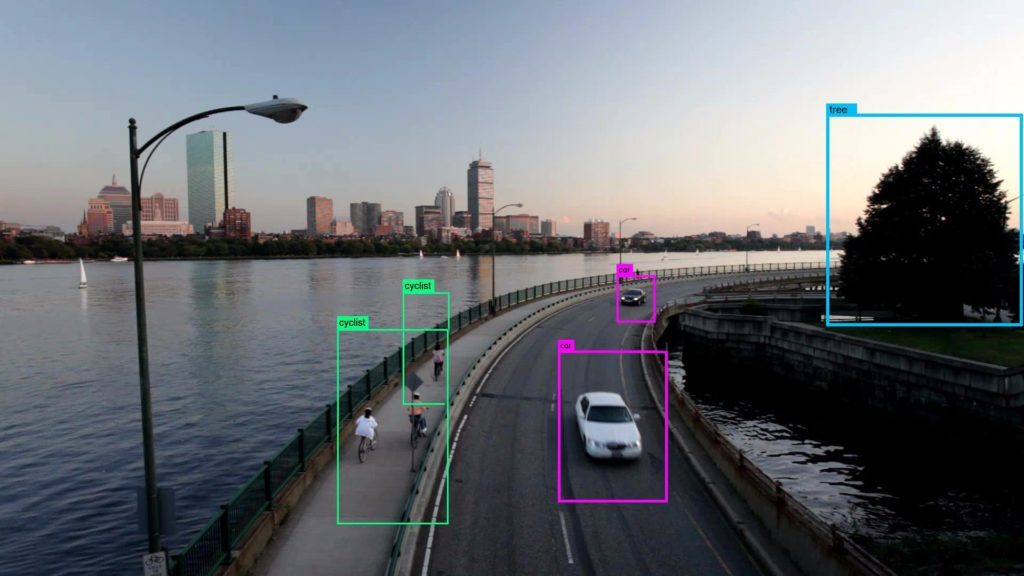
Massachusetts based drone maker CyPhy Works is growing dramatically, hiring staff and expanding their physical plant. Founded by industry star Helen Greiner, a seasoned “serial robotics entrepreneur,” the company offers unique commercial and military drones that have captured attention in the press and the market. With a strong partnership list, an impressive and growing customer base and rapidly evolving technology, they’re looking for good employees – but it isn’t always easy to find the right skill set.
Lead developer T.J. Bordelon explains that the skill sets many new developers have isn’t a good match for drone development. While Bordelon says that CyPhy hopes to find engineers with a passion for drones, that may come after someone joins the team: what they need most in his department is an experienced C/C++ and Linux developer with some demonstrated expertise in interfacing to hardware. “The most interesting thing to me has been how hard it is to find talent that is good at lower level programming,” says Bordelon. “Most of the newer crop of engineers are very high level: Java, web, ‘Big Data’, and all of the latest buzzwords. Which is great, but not when you’re trying to control hardware.”

Kachi Okoronkwo, Technical Recruiter at DroneDeploy, agrees that a passion for drones – while a plus – is not the company’s first priority. “I think one of the greatest misconceptions is that we seek out, or put a premium on, previous drone industry experience. While we love people who love drones, that isn’t enough to get you hired,” says Okoronkwo. “Many drone hobbyists think their interest makes them uniquely qualified, but we are building a software product, not flying drones all day. When you reach out to DroneDeploy – or any other company – you should know what they do; what their needs are; and how you can contribute.” Okoronkwo says that technical skills such as experience with GIS (Geographical Information Systems), essential to automated flight, or photogrammetry, which is how DroneDeploy turns captured images into high quality maps and 3D models is important. “‘I want to work for DroneDeploy’ is not nearly as compelling as ‘I want to use my multi-view stereo reconstruction background to help you improve your image processing,'” she comments. “We have hired people for roles we didn’t have because they used the latter approach.”

Deep learning software company Neurala is a case in point. Neurala created the Neurala Brain, which can be used in self-driving vehicles, toys, and – one of the biggest markets for the software – drones. Their unique offering is ideal for both recreational drones (think “follow-me” capabilities, training your drone to recognize you on a bike) or commercial drones (with applications in inspections, security, and others.) Having just completed a major funding round, and with a significant and growing list of partnerships and deals in the drone industry and others, the company plans to expand their team. “Neurala is looking for two types of people,” says Roger Matus, Neurala’s Vice President of Products and Markets. “The first understands artificial intelligence, either as a deep learning researcher or as a developer. The second are people with domain knowledge, such as drone inspections or drones in real estate. These may be the best fit for product development or for marketing and sales.”
Most companies agree that prospective employees in a growing technology field need to be smart, flexible, collaborative, and problem solvers. Drone technology is moving fast; it’s an exciting field, but one that demands a strong team. Prospective employees need to demonstrate that they can help a company achieve big goals.
“At the end of day we are working to be a world leader in an emerging market,” says Drone Deploy‘s Okoronkwo. “This means we are tackling problems that no one has seen, and trying to apply the best possible solution. The best people to do that are the ones who have previously achieved expertise somewhere in their career.”
Miriam McNabb is the Editor-in-Chief of DRONELIFE and CEO of JobForDrones, a professional drone services marketplace, and a fascinated observer of the emerging drone industry and the regulatory environment for drones. Miriam has penned over 3,000 articles focused on the commercial drone space and is an international speaker and recognized figure in the industry. Miriam has a degree from the University of Chicago and over 20 years of experience in high tech sales and marketing for new technologies.
For drone industry consulting or writing, Email Miriam.
TWITTER:@spaldingbarker
Subscribe to DroneLife here.